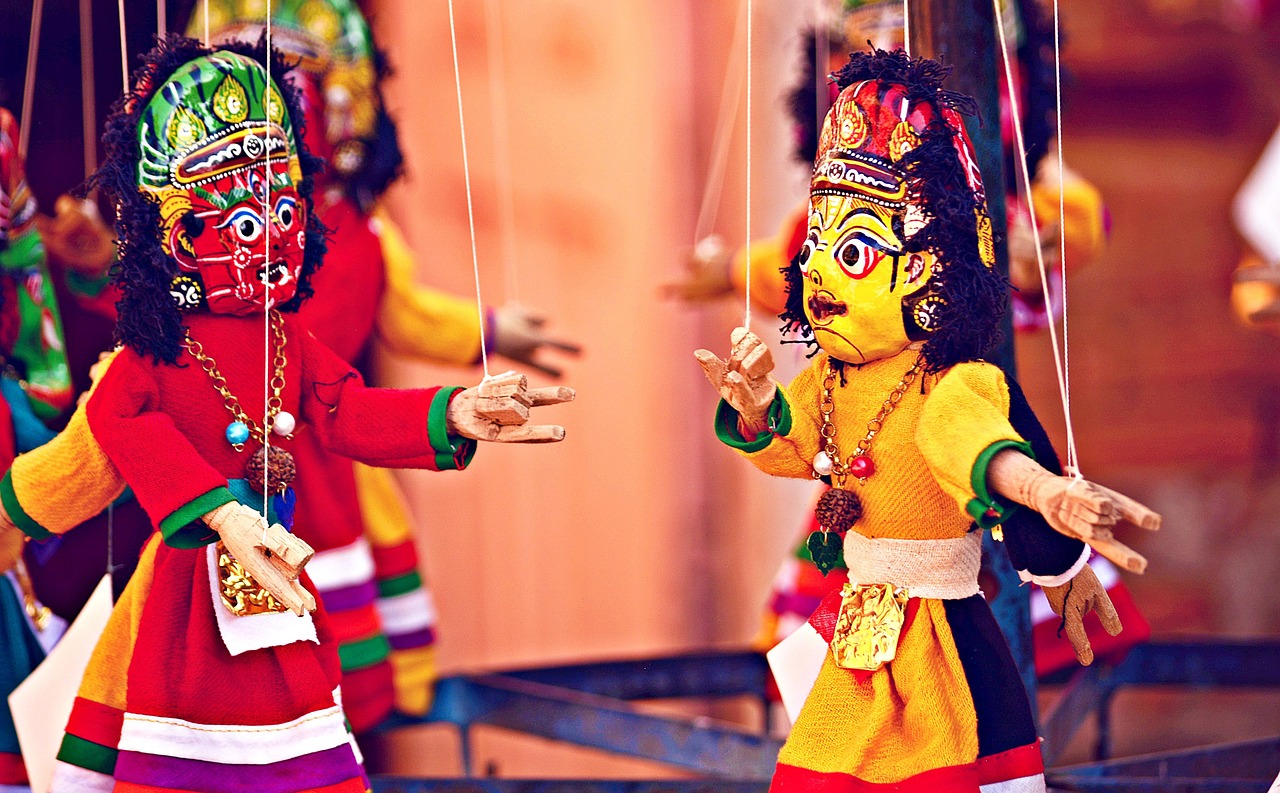Anthony Hopkins’ regal and charismatic portrayal of Odin ensured that even if you haven’t read Norse mythology, you know who Odin is.
The word ‘Odin’ can be loosely translated as “Master of Ecstasy”. Many texts refer to him by other names like Wotan, Wodan, and Wuotan. Although his image in the Marvel universe is that of a wise old warrior, the Norse mythology portrays him on a much complex scale. He is a war god but also a god of poetry. He is a patron of the rulers but also the outlaws. The eleventh-century historian Adam of Bremen paints a multifaceted image of Odin when he states, “when he sat with his friends, he gladdened the spirits of all of them, but when he was at war, his demeanor was terrifyingly grim.”
Krishna from the Indian epic the Mahabharata is one of the most enigmatic and influential figures in the Hindu pantheon.
Both Krishna and Odin assist in different capacities in two important wars.
The Battle of Kurukshetra:
Krishna is seen aiding and advising the Pandavas in a battle against cousins, the Kauravas who are led by King Dhritarashtra and his son Duryodhana. Krishna opts to be a charioteer for the Pandavas most capable archer, Arjuna.
The Battle of Bravalla:
Odin disguises himself as King Harald’s servant in a battle fought between the Danes led by King Harald Wartooth and the Swedes under king Sigurd Ring.
In both the stories, a blind old king is seen leading the forces. However, in case of the Norse legend, the king Haraldus Hyldetan leads the forces actually, as against Dhritarashtra, who is seen leading them only nominally with the real command at the hands of his son Duryodhana. Both the battles are fought against nephews of the king with the victory going to the nephews.
In both cases, a God in human form intervenes and achieves victory using ambiguous and sly manoeuvres and secures victory for the side he favours. So it is with Odin at Bravalla and with Krishna at Kurukshetra. In the Mahabharata we find Krishna (a God) acts as Arjuna’s charioteer, likewise, Odin disguises himself as a servant with the name Bruno to Haraldus and acts as his driver.
Krishna in the Mahabharata fights on the winning side. He makes it clear during the negotiations that the Pandavas are going to win,
You wish to obtain the [death] bed of a warrior and your desire will be fulfilled. Station yourself with your advisers and there will be a great destruction. (Vol. 4, 471)
He is the one who steers the Pandavas towards victory but, he is also a non-combatant in the war. Odin, on the other hand, chooses to be the driver of Haraldus who loses the battle to his nephew and killed. Odin kills him by clubbing the blind king on the head.
It is noteworthy that both Odin and Krishna kindle the strife between the two warring parties. Odin took over as the messenger between Haraldus and his rival-nephew Ringo and conveyed the message of peace in such a twisted way that war seemed inevitable. Oliver Elton (The First Nine Books of the Danish History of Saxo Grammaticus) states it very succinctly,
And Odin disguised under his name and looks [as Bruno], shook the close union of the Kings by his treacherous embassage; and he sowed strife so guilefully that he engendered in men, who were bound by friendship and blood, a bitter mutual hate, which seemed unappeasable except by war. (307)
Although Krishna did not sow strife between the Kauravas and the Pandavas but is see fanning on many occasions. One such instance is after the Dice game in the forest when people around him are advocating peace and forgiveness Krishna he promises to punish the Kauravas,
Had I been there Suyodhana [Duryodhana] would not have been alive. (Vol.2, 336)
The idea of everything being predestined is reinforced by Krishna himself. When both the sides are debating who is the rightful King of the kingdom, Krishna made it clear as to what was the true aim of the war: it wasn’t the victory of the Pandavas or the Kauravas, it was the victory of dharma (righteousness) over adharma (disharmony).
These comparisons are curious as both these present how Gods intervened in human life and used the characters, shaped their destinies and how all their actions had a higher purpose. Odin, in the Norse mythology is the god of wisdom, poetry, war, death and magic. Additionally, even though it is not mentioned, Odin can also be viewed as a trickster: disguising himself and deliberately fanning strife. Both Krishna and Odin are deities and tricksters who shape destinies and influence outcomes of major wars.
Another instance where the two coincide is when Krishna insists that Arjuna get first pick during the War preparation, as Krishna “saw him first”. There exists a myth of the old Germanic tribes of the Lombards written by Paul the Deacon. The myth talks about a rivalry that existed between Winnili, a tribe settled in a region called Scoringia and a tribe called the Vandals. The Chief of Vandals asked the Winnili tribe to either pay them tribute or be ready for war. Winnili chose war and both the parties went to Godan (Odin) to grant them victory over the other party. Godan said that he would grant victory to “Those whom he saw first at sunrise”. All the women of the tribe of Winnili arranged their long hair in a way that the hair would look like a long beard. They stood with the men outside Odin’s window. Odin was surprised by this curious sight of men with impossibly long beards and he grants them the boon.
